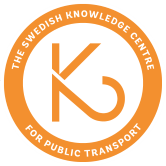Vulnerability of Public Transport in Covid-19 era: an Holistic Approach to Move Forward
Vulnerability of Public Transport in Covid-19 era: an Holistic Approach to Move Forward
All the currently published data coincide in that mobility has dropped around the world as the Covid-19 virus spread has increased and crossed frontiers.
It is well known that the spread of the virus is facilitated by individual mobility and mobility is affected by the circumstances related to combating the pandemic. Many research projects have just started (or are about to take place) within Sweden, trying to achieve a better understanding of the ongoing situations under different angles (changings in travelling habits and secure passenger flows data sources, new smart-working strategies that may partially replace the necessity to physically travel/be in the office in the next future, changings in costs/revenues and public transport financing).
This project wants to complement and coordinate the existing projects mainly focusing on two aspects:
1. COMPLEMENT, Supply-side: How do the public transport system and supply are adjusting to face the virus outbreak? Public capacities have been reduced, and to what extent? Is there a plan to increase frequencies to reduce waiting times and passenger accumulation at stops and stations, and to guarantee social distancing measures between passengers inside the vehicles?
More specifically, we want to focus on “spreading the peaks” of public transport services. This has been an idea widely discussed in the past, but not carried out yet. However, the pandemic might constitute an unprecedented opportunity to experiment a bit (try to implement policies and ideas previously discussed and assess their effects in practice).
2. COORDINATE: Create a coordination/collaboration among the Covid-19 applications ongoing in Sweden (plus those that are going to be funded by the end of the year), to facilitate data collection processes, avoid overlapping, promote an organic integration.
We believe that such an effort could be crucial to optimize the usage of resources and assure a “holistic” approach to the pandemic dynamics from a transportation perspective (joint workshop(s), joint seminar(s) to exchange data, experiences, and results).
